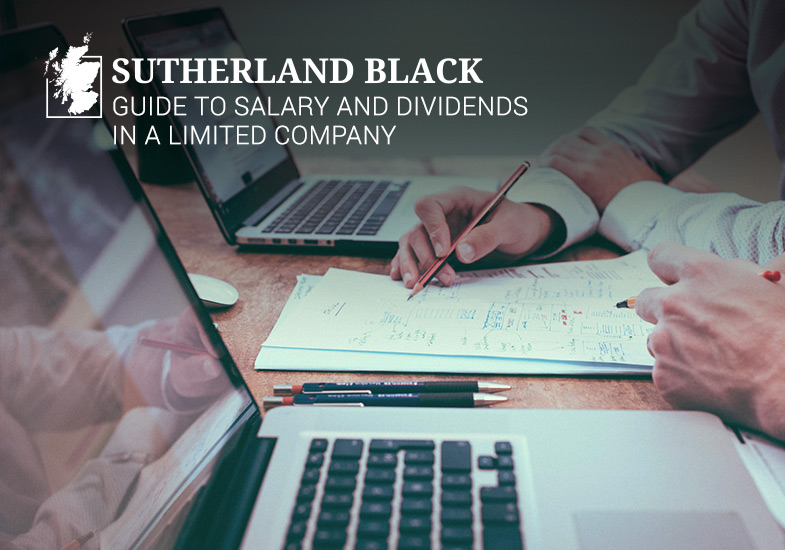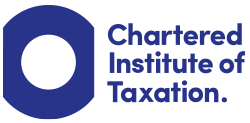Optimising salary and dividends for shareholders in an owner-managed Limited Company isn’t rocket science.
However, many Limited Company owners are still paying themselves large PAYE salaries, potentially costing them thousands of pounds in unnecessary National Insurance payments every year.
Every Company owner should be checking that they have optimized their salary and dividends every year to ensure that they are not overpaying.
Read on to see how we have saved clients thousands of pounds a year by restructuring their remuneration, making sure they are saving tax every month.
What Are The Income Options from my Limited Company?
When considering how to take income from your Company, you first need to decide what options are available to you. We will list the standard options here and then examine how to optimise them in turn.
- Salary. A PAYE salary is available to all owners even if the Company is a start-up and has no profits. The salary and associated National Insurance payments will be deducted from the profits of the Company and will reduce the Corporation Tax liability.
- Dividends. As we will see below, taking dividends as income can reduce the National Insurance burden for Directors who own all or part of a company’s shares. However, the Company must have current year or brought forward profits to enable dividends to be issued. So until the Company is profitable, this can be a nonstarter.
- Pension. A company pension contribution is a highly tax-efficient way to take an income. However, the cash will be tied up, so this will only be an option for cash-rich Companies.
- Other Ways To Extract Profit. Depending on the Company’s circumstances, it may be possible to pay interest on a Director’s loan or pay rent on a property that belongs personally to the owner.
Do you need more advice or looking for an accountant for your limited company?
What are the benefits of taking a salary in a limited company?
A Salary Ensures Credits For The State Pension
Besides the tax benefits of taking a salary in using up some or all of your personal allowance, there is one critical factor that every business owner should consider. To qualify for the full UK state pension, you will need 35 qualifying years of National Insurance payments. Details on .gov.uk here. To replace the state pension, a business owner would need a private pension pot of over £200,000, so to ignore this is crazy.
A Salary Reduces The Corporation Tax Bill
The salary taken will reduce the taxable profits and therefore reduce the Corporation Tax bill. However, we will see below in the end that whether tax is paid through Corporation Tax in the Company or Personal Tax by the owner does not hugely affect the overall tax bill.
The drawbacks of paying a large salary in a limited company
A Large Salary Is A National Insurance Disaster
The most uncomplicated and most straightforward approach might be to pay a salary that reflects the available profit in the Company. However, there is a massive drawback to this. PAYE salaries attract Employer’s National Insurance. So, for example, a gross salary of £40,000 would attract a Class 1 National Insurance Liability of £4,300 in 21/22. This significant tax bill is the cost of employing yourself. If possible, this should be avoided, but for start-ups or loss-making Companies may be inevitable.
The Optimum Salary For Most Business Owners
Happily, there is an optimum level of salary that is right for most owners when restructuring their income to a mix of salary and dividends. This amount changes every year but in 21/22 is £520 a month, specifically the National Insurance Class 1 Lower Earnings Limit. There is no National Insurance to pay at this salary level, but a year of credit for the state pension will be applied.
Advantages Of Taking Dividends From A Limited Company
The Dividend Tax-Free Allowance
The first great advantage of taking dividends is a £2,000 tax-free allowance a year that every owner should take advantage of.
Dividends Don’t Incur National Insurance
The second and most compelling argument for taking dividends is that there is no National Insurance on dividend payments. This saving is the significant tax saving that most owners will be looking for.
Dividends Don’t Incur Extra Income Tax
The tax rates on dividends of 7.5 % at the Basic rate, 32.5% at the Higher rate, and 38.1% at the Additional rate mean that there is no massive difference in tax bills between the final sum of the Corporation Tax Bill and the Income Tax bill for the owners.
Disadvantages Of Taking Limited Company Dividends
Dividends Can Only Be Taken From Profits
Dividends can only be taken if the Company has current year or brought forward profits. This issue can mean that new businesses can’t use this remuneration route while they build the business.
Dividends Are Not Tax Deductible For The Company
Dividends are not tax-deductible for the Company, so the Corporation Tax Bill will be higher using this method. However, the overall tax bill will be roughly the same between the Company and the owner or owners, so this is not the most significant consideration.
Dividends Can Cause Issues For Multiple Owners
If there are multiple owners, this can cause problems if one owner works part-time, but the owners own half the shares. Dividends on each class of shares must be paid at the same rate in proportion to the share ownership. Multiple classes of shares can be considered with different dividends paid on each, but specialist advice should be taken before this is implemented.
Dividends Can Cause Issues Getting Mortgages
Historically there has been an issue where mortgage lenders would rather see a large salary than a combination of salary and dividends. However, in recent years the market has changed somewhat, and the lenders seem to have become more amenable to owner-managers and the way they pay themselves. Therefore, it pays to go through a broker who understands owner-managers and can go to the lenders who have the best attitude to these circumstances.
Advantages Of Taking Pension As An Income From A Limited Company
Pensions Can Save Income Tax
There are so many advantages of taking a pension as income that we will dedicate another blog post to it. The Primary advantage of taking a pension is that there is no income tax on it at the point the money is paid to the pension. When the pension is drawn at a later date you may be paying a lower rate of tax.
The Bad Old Days Of High Pension Charges Are Gone
Historically business owners have been wary of private pensions due to high charges and low returns. However, low-cost Self-Invested Pension Plans (SIPP) are now available with low-cost funds representing excellent value for money. We are not allowed to advise in individual investments but can point clients to low-cost platforms to get started.
Pension Contributions Can Save Corporation Tax
Pensions are complicated, but a “Company Pension Contribution” where the Company contributes straight to a Pension Plan is the usual arrangement for an owner. However, contrary to popular belief, the annual amount allowed is £40,000 a year and not capped to the owner’s salary. This amount is then a cost for the Company and will reduce the Corporation Tax due.
Pensions Can Avoid Inheritance Tax
In another little-known advantage, if a pension is not converted to an annuity and not exhausted before death, Inheritance Tax will not be payable. This benefit arises because the pension is a Discretionary Trust. Financial Advice should be taken from a qualified Independent Financial Adviser before investing large amounts in a pension.
Disadvantages Of Taking Pension As Income From A Limited Company
Pensions Are Terrible For Cashflow
While pensions are great for tax efficiency, there is one unavoidable fact that means that the take up of pensions is not as high as you might imagine for small Company Owners. The money paid into a pension is locked up and not available for use by the owner or the business. A £40,000 pension payment would save £7,600 in Corporation Tax but leave a £32,400 dent in the cash flow. Small Companies often have cash flow problems, so significant pension contributions are usually only considered after the business becomes profitable and cash-rich.
Other Ways To Extract Profit From A Limited Company
Interest On Loan Payments
If an owner has loaned money into the Company, interest can be paid on it at a market rate. Rates of over 10% are standard in the small business arena, so a rate around this would be deductible by the Company from its profits and receive Corporation Tax relief. In addition, depending on the owner’s other income, there may be some relief on income tax from this income. Rates are on HMRC here. There is some additional admin hassle with this route though as the Company will need to withhold tax on the interest and submit a quarterly CT600. There is no National Insurance due on an interest payment.
Rental Income
If the owner personally owns the premises from which the Company trades a rent payment can be made at the market rate from the Company. Corporation Tax will be deductible on this payment for the Company; however, income tax will be chargeable to the owner. Again there are no National Insurance implications, so this could be an interesting route to extracting money from the Company.
FAQs
How Often Should I declare Dividends And When Are They Taxed?
You can declare dividends as often as you like. Common intervals are monthly, quarterly or yearly. Directors should remember that if they take cash payments from a Company before they have declared the dividends that they may end up with an overdrawn Director’s loan account (DLA). Overdrawn DLAs are subject to complex Benefit in Kind and Corporation Tax rules.
Can I Pay Myself Just Dividends?
It might seem simpler to just pay dividends and not put yourself through the payroll if you own the Company. The fundamental reason for not doing this is to retain the state pension benefits of paying a salary to get the year’s credit towards the 35 years that are needed for a full state pension. Remember there is an ideal salary level where there is no National Insurance to pay but the benefit is retained.
The Perfect Balance Of Salary And Dividends
The perfect balance of salary and dividends is different for every Limited Company and probably different throughout the Company’s lifecycle. It depends on how many owners there are, how profitable the Company is, and the business’s individual circumstances.
There are, however, a couple of points that apply to nearly every Company. First, ensure that the Director/Owners are taking a salary that gets them an annual credit for their state pension. Then ensure that they are not taking illegal dividends when there are insufficient profits in the business. And finally, consider the balance between all other methods of remuneration.
Get In Touch
If you would like expert advice on structuring the remuneration from your business, please do not hesitate to get in touch.





